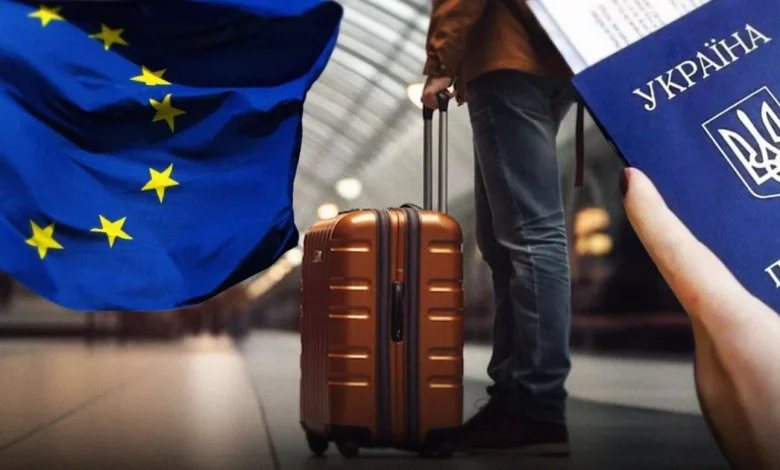Which of the refugees will definitely not return to Ukraine: the director of the Institute of Demography and Social Research revealed the reasons

The situation with millions of Ukrainians who left the country due to the full-scale invasion of Russia remains one of the most painful topics of the postwar future. Governments, analysts and experts discuss how to ensure the conditions for the return of citizens who have settled in Europe and beyond, whether they will return at all, and who should not be waited for. This is not only a humanitarian issue, but also a strategic one — it is about the demographic survival of the country. Director of the Institute of Demography and Social Research named after Ella Libanova outlined factors that can both encourage Ukrainians to return and keep them abroad forever. Her analysis, not emotional, but rational, reveals a difficult truth: a part of fellow citizens will never return to Ukraine – and here’s why.
Why Ukrainians may not return
Libanova emphasized: there are circumstances that Ukraine cannot objectively influence. This is a higher standard of living in the countries where Ukrainians live. Even in Poland, not to mention Germany, the Netherlands or Denmark, living standards are consistently higher. It is not only about income, but also about general quality: availability of infrastructure, peace of mind, services. “We can’t do anything here,” she states.
The situation is especially critical for families that include people with chronic diseases, for example, cancer patients. In many EU countries, medical care, including expensive drugs and equipment, is covered by insurance, which allows patients to receive a full range of services free of charge. In Ukraine, most of the similar expenses have to be paid out of one’s own pocket. According to Libanova, this is a serious argument in favor of staying.
The decision to return very often depends on whether the entire family is abroad. If so, the chances of returning are significantly reduced. In the case when parents, husband or other close relatives remain in Ukraine, the desire to return increases. However, the expert notes: after the end of the war, the situation may turn the other way around — the men who remained will join their families abroad. But here too, everything is individual: if the husband remains in Ukraine, the possibility of his wife’s return increases significantly.
Having your own home plays an important role in the decision to return. If the family has real estate in Ukraine – an apartment, house, plot or farm – it is kept. A person feels that he has something to return to. If there is no housing, it is much easier to move. Libanova emphasizes: city dwellers leave Ukraine more often precisely because of this mobility — it is easier for them to pack up and leave. And in villages, where the attachment to the economy is stronger, emigration is less massive.
One of the main requests of Ukrainians who left the country is security. While it is dangerous in Ukraine, they will not return. Another key issue is the availability of housing. Even if housing was rented or shared with parents before leaving, Ukrainians abroad often have the opportunity to rent housing with the participation of local authorities, without a significant financial burden. In such a situation, people do not feel like refugees in shelters – they have a roof over their heads, albeit temporarily. In addition, the employment that was managed to be established outside the country also affects the decision: there is no sense of loss, there is a sense of a new beginning.
What can push refugees to return
According to Ella Libanova, most of the women who left Ukraine have higher education. This is explained by several factors: primarily young people emigrated, who, as a rule, are better educated, and also mainly residents of cities – also with a higher level of education. However, diplomas are often not recognized abroad, and knowledge of the language does not always allow finding a qualified job. Therefore, many Ukrainian women are forced to occupy positions that have a lower social status than those they had in Ukraine. This creates frustration: formally everything is not bad, there is work, there is money, but there is no satisfaction and recognition.
Another powerful factor is social isolation. According to Libanova, even in relatively tolerant societies, Ukrainians remain “not their own.” They are not stigmatized, they are not marginalized, but they are not perceived as part of the community either. This is especially acutely felt in small towns or villages where there is no established Ukrainian diaspora. In such conditions, adults especially suffer from the lack of usual social contacts. Children adapt faster, but it is more difficult for adults, and this is another factor that makes you think about returning.
“They don’t communicate with them the way they used to communicate. And if it is a big city, they can at least find their own community. But if it is a small town or rural settlement, then there may simply be no migrants there. And they have no one to talk to. It also keeps people coming back. If children adapt more or less quickly, adults not so quickly. And for adults it matters. No less than for children, and perhaps even more. That’s why it also matters.” — notes Ella Libanova.
As evidenced by Ella Libanova’s point of view, there are no universal solutions. Someone will choose to stay because of treatment or education of their children, someone will return because they cannot stand a foreign country or feel responsible for their relatives in Ukraine. But there are those whom Ukraine, most likely, will no longer see: because of the objective advantages of new places of residence, because of the loss of connection with home, because of the realization that the new life has become ordinary. And this is also a reality that will have to be accepted.





